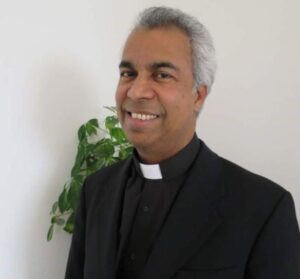Second Sunday of Advent, Year A – Mt 3:1-12: The Preparation of the Way of the Lord

Christmas at the end is the most important event of the period of Advent. It is for many christians their most important Fest with many family traditions, customs, visits of family members and a variety of celebrations. In the feast of Christmas we commomerate the first coming of Jesus and get ready to prepare ourselves for his second coming.
During Advent we hear in the Sunday gospels about John the Baptist, a relative of Jesus, a cousin, who announced the coming of Jesus and prepared the way for him. On the second Sunday of Advent the story of John the Baptist who came to prepare the way for the person and message of Jesus is the theme. Jesus described John the Baptist as the greatest human of the Old Testament. John the Baptist presented Jesus as mightier than he himself and sent hisown desciples to Jesus and told them to follow Jesus. John the Baptist appeared in the great traditions of the Old Testament prophets. His baptism of repentence is the anticipation of the Christian baptism.
The message of John the Baptist is the key theme in Advent. But the lifestyle and message of John the Baptist do not correspond to our present concept of the period of advent and celebration of christmas. John the Baptist did not have a beautiful clothing; he wore clothing made of camel‘s hair, he had a leather belt around his waist. He lived in the desert where the climate is some times very hot, some times very cold; he experienced loneliness. He ate locusts and wild honey. We can not imagin today his dress, his lifestyle ,his habits, and his food. In our present view he is primitive, not suiting to the present culture, he is uncivilised.
He hurts our pride calling us „brood of vipers“ and warns us to repent and to bear good fruits. He threatens and warns us and informed about the combustion in never quenching fire. He looses temper at times and does not care for a civilised manner of behaviour.
As I read the text with the words of John the Baptist, I thought, what would be our reaction, if some one comes today and talks like John the Baptist. Would we be ready to hear him, repent our act, convert and get baptised? Or would we ignore him and avoid him or try to punish him. Not only today, even during the days of Jesus, people could not tolerate personalities like John the Baptist. John the Baptist had to surrender to his fate at that time. He was assassinated.
But his message was to „repent“. It is „metabolism“, coming back to the Lord. The period of advent is a period to turn back and convert; to think, change and to start new. We should prepare our hearts and open ourselves to the Lord and let the Lord work in us, let the Lord incarnate in our hearts. Metabolism is transforming ourselves into the way of the Lord and be with him united.
In Advent we listen to the message of John the Baptist and prepare the way of the Lord. The Lord comes and welcomes us. I wish you a new beginning in thinking and acting. Every Christmas announced a new life, a new hope, a new joy.
Fr. Joseph Pandiappallil MCBS


